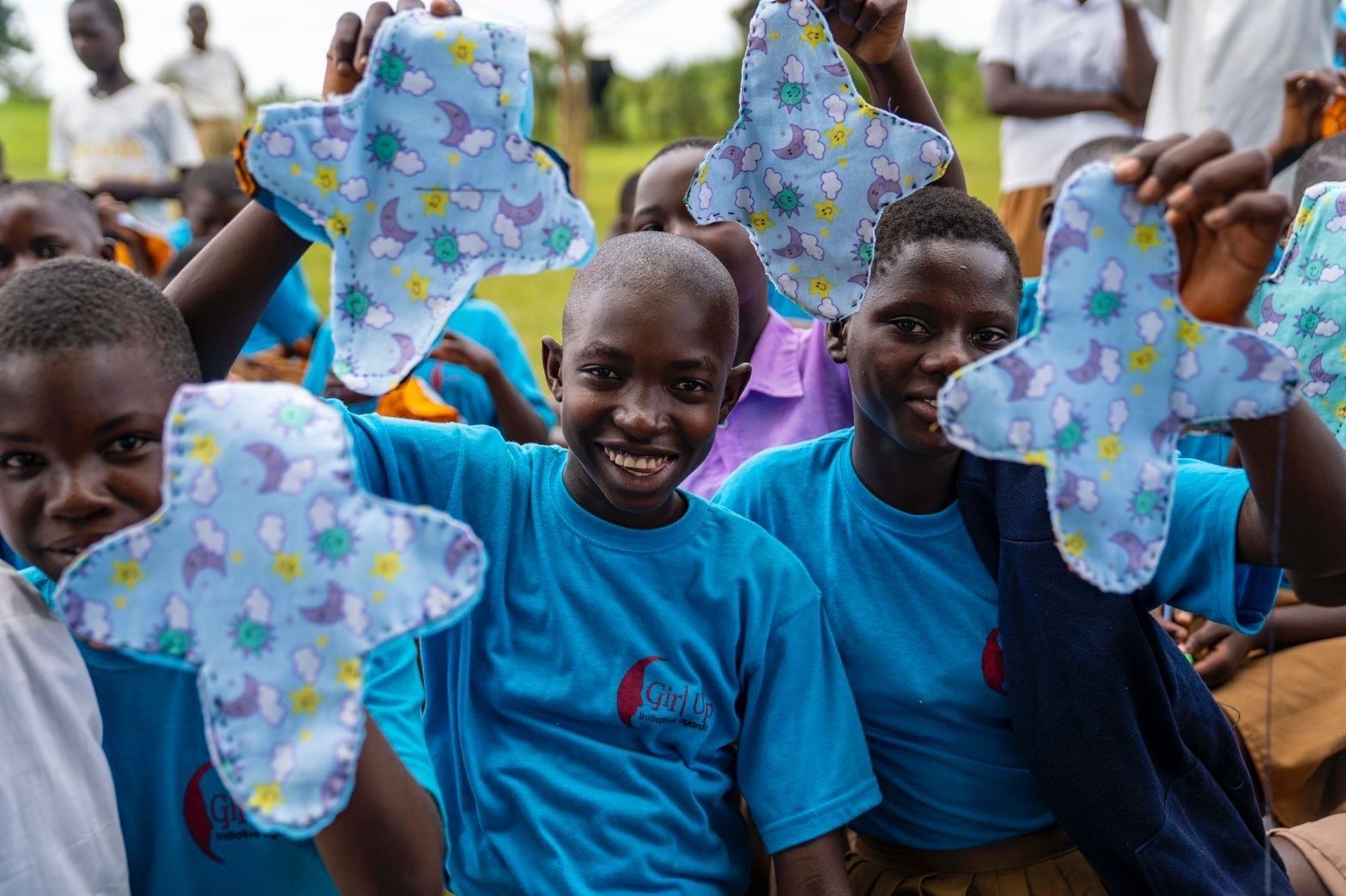Importance of sustainable menstrual hygiene solutions

A lack of these resources hampers effective menstrual hygiene management. PHOTO | COURTESY
What you need to know:
- Choosing sustainable period products ensures elimination of harmful chemicals and fragrances and focus on organic ingredients and materials that are easily renewed without minimal environmental impact. They also ensure that women who cannot afford single use products such as pads can carry on with their daily activities without their period getting in the way.
Desperate women use unsanitary means to address menstrual hygiene (such as leaves, sitting in sand and using old clothes and rags), and even worse, engaging in transactional sex for money to obtain sanitary products.
To maintain good menstrual hygiene, a pad should be changed every two to six hours in a day, depending on one’s flow of blood. However, due to the cost of menstrual hygiene products, many adolescent girls in Uganda miss school because they cannot afford these products.
According to Godfrey Tumwizere, a sexual reproductive health and rights specialist at Action 4 Health Uganda, a girl, on average may miss up to two to five days of school per month due to menstruation and most schools do not have emergency sanitary towels for them. This negatively impacts their grades and their ability to keep up with peers.
“The low availability of these resources hampers effective menstrual hygiene management education and support. Concerned stakeholders must ensure the availability of comfort kits containing pads, knickers, soap and educational materials on puberty for all menstruating students,” Tumwizere says.
Dr Immaculate Nabukenya, the senior technical advisor at Could You?, remarks that employed women miss one or more days of work per month, negatively impacting performance and productivity. The World Bank estimates that girls not completing school costs $15 - $30 trillion in lost lifetime productivity and earnings.
Scotland was the first country to offer menstrual hygiene products free of charge on a national scale. Other countries such as New Zealand and Kenya also distribute these products for free in public schools. In Uganda, a pack of disposable menstrual pads costs around Shs3,500 and you may need about two packets to take you through a menstrual cycle, depending on your flow.
The menstrual cup
The United Nations Human Rights Office of the High Commissioner issued a statement acknowledging the “diverse menstrual movement” taking place around the globe and its role in breaking the silence around menstruation and in recognising it as a “human rights, gender equality and public health issue”
The menstrual cup is a molded, one-piece medical grade silicone cup. The mould is Food and Drug Adminstration (FDA) registered and manufactured by California Medical Device Manufacturing Company.
“For a one-time cost of $10 (about Shs37,000), the menstrual cup provides a reusable solution to address menstrual hygiene and it can be used for a period of 10 years with proper care. It alleviates monthly anxiety associated with having to find the money to purchase sanitary products,” says Dr Nabukenya.
The cup was endorsed by the Mozambique Ministry of Education as a tool to keep girls in school. One study showed menstrual cups reduced adolescent girls’ absenteeism by about 92.9 per cent. With the menstrual cup, $10 meets the menstrual needs of one woman for 10 years and you do not need a lot of water.
The cup is significantly less expensive than a lifetime of tampons or sanitary pads. It is an affordable and sustainable solution. Designed to be placed in the vagina for up to 12 hours and can hold up to five times the menstrual flow that can be absorbed by a tampon.
Usage
Before the cup is used, place it in a container of water and boil it for five minutes. Thereafter, let it air dry. Wash hands with soap and water before and after inserting and emptying the cup.
Do not use soap to clean the cup because it will cause irritation inside the vagina. Never share the cup with anyone because it can cause a transfer of infections.
“Consult a health professional before use if you have abnormally heavy and painful period bleeding, pregnant, intrauterine contraceptive device, vaginal injury and stop using it if you experience pain, burning sensation, allergic reaction or inflammation in the genital area,” Dr Nabukenya advises.
Reusable sanitary pads
Through its adolescent education programme domain, Girl Up Initiative Uganda carries out reusable pads training in Universal Primary Education (UPE) schools around Kampala and Bukedea districts. These trainings are an initiative aimed at addressing the challenges of limited access to sanitary materials by teaching girls and women how to make their own safe-to-use sanitary towels out of easy to get and affordable materials.
According to Joan Atimango, the programme officer Girl Up Initiative Uganda, menstrual Hygiene Management (MHM) training for the girls in schools, homes and communities which enables them to get the right and appropriate information, knowledge concerning menstruation and the opportunity to debunk various myths that surround menstruation is key.
These trainings are usually extended to parents, school committees, communities and boys and girls alike. This type of pads should be washed thoroughly and dried in the sun then ironed before they are reused.
“The trainings have also proved to be a great help in supporting schools to provide safer and more private spaces for the girls, such as availing separate toilets for both boys and girls, hand washing facilities as well as sanitary pad disposal facilities (incinerators) to assist in disposal of sanitary towels,” she says.


